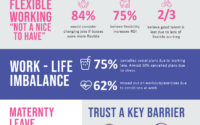Emirates Food Security Council Forms Key Committees And Assesses Latest Trends In Food Security
The formation of key committees and the management of the country’s strategic stocks of food were two of the main topics on the table at the third meeting of the Emirates Food Security Council.
Chaired by Her Excellency Mariam Almheiri, Minister of State for Food and Water Security, the virtual event also assessed the latest trends driving the food security domain, reviewed the recommendations of the council’s first two meetings, and appraised the work of the Abu Dhabi Food Security Taskforce and the Dubai Food Security Committee in their efforts to address food supplies during the ongoing Covid-19 pandemic.
The meeting brought H.E. Almheiri together with council members representing the Ministries of Economy, Climate Change and Environment, Energy and Infrastructure, Health and Prevention, and Education, as well as the National Emergency, Crisis, and Disasters Management Authority.
Other councilmembers include representatives of the Abu Dhabi Agriculture and Food Safety Authority, Dubai Municipality, Sharjah Health Authority, Municipality and Planning Department in Ajman, Umm Al Quwain Municipality, Environment Protection and Development Authority of Ras Al Khaimah, and Fujairah Municipality.
“The UAE’s wise leadership has provided unstinting support to enhance the country’s food security system,” H.E. Almheiri asserted. “This has been particularly evident throughout the current coronavirus outbreak, which has called for additional measures to secure food supply chains in the UAE and around the world in light of the virus’s impact on global trade.”
“The Covid-19 crisis has demonstrated that the UAE’s food security ecosystem is prepared to handle various crises and emergencies,” H.E. added. “Our approach, which relies on collaboration and partnerships with relevant entities in the UAE, has succeeded in ensuring all food items are available in UAE markets. This third meeting of Emirates Food Security Council has enabled us to build on these successes and enhance our ability to secure our food needs both in the immediate term and for the future.”
“To quote His Highness Sheikh Mohammed bin Rashid Al Maktoum, Vice President and Prime Minister of the UAE, Ruler of Dubai, ‘Anyone who thinks that the world after COVID-19 will be the same as the one before it is mistaken.’ With this foresight in mind, we must begin a new stage in our mission to ensure our future food security, using any means and capabilities at our disposal,” H.E. Almheiri noted.
“We need to create an inspiring and participatory work environment to drive our progress towards a common goal of transforming the UAE into a global hub for food security and innovation. We must continue striving to provide citizens and residents in the UAE to have access to safe, sufficient and nutritious food for an active and healthy life at affordable prices at all times, including emergencies and crises,” Her Excellency added.
The Emirates Food Security Council operates according to a strategy that takes into account prevailing food security management trends in the country, assessing – among other aspects -water security, energy security, emergencies and crises, strategic stocks, local agricultural production, food safety, foreign investment, diversification of import sources, and nutrition.
The council is the primary council reference for all UAE food affairs in charge of following up on the implementation of the National Food Security Strategy with relevant authorities. Its tasks include overseeing plans and activities that seek to realise the strategy’s five strategic objectives; facilitating global food trade and diversifying import sources; developing sustainable, tech-enabled local production along the entire value chain; limiting food loss and waste; ensuring food safety and improving nutrition systems; and building up the UAE’s ability to face food security risks and crises.
The Abu Dhabi food security team that forms a significant component of the council confirmed that it has set strategic goals and an implementation action plan based on the guidance and directives of the leadership. The plan includes a set of initiatives to ensure the sustainability of the supply of food commodities, supports the entities involved in the food chain, diversifies the sources of imported food commodities, and supports local production. The team praised the cooperation of all concerned government entities in the UAE in creating a resilient food supply network that is meeting the demands of this unique period.
Omar Bu Shahab, Chairman of the Dubai Food Security Committee, expressed appreciation for the national efforts to achieve sustainable food supply and security, which aim to foster safe and healthy food supply for all members of society and at all times – especially during emergencies and crises. Bu Shahab shed light on the work the UAE government is engaging in to harness all capabilities, foster food security, and enhance its readiness to tackle future challenges, in a way that supports the national leadership’s vision.
“The UAE government is working on proactive plans and mechanisms that contribute to the diversification of food supply sources and their sustainability, which were resorted to during the coronavirus pandemic. Despite the pandemic’s challenges, the national food security system successfully demonstrated its readiness to manage and secure the necessary food supply across the country. This is a result of concerted efforts undertaken by the parties responsible for food security, and of our national leadership’s continuous support,” said Bu Shahab.
“Managing food security involves adopting the latest technological resources that have the potential to advance the strategic approach for food security in the UAE, with aims to achieve the goals of the national food security strategy; enhance strategic inventory; and make use of existing innovative tools and solutions which facilitate food access and enhance national self-sufficiency, in turn reducing our dependence on imported goods,” he added.
Forming the Key Committees
The third meeting of the Emirates Food Security Council included the formation of the council’s key committees, whose roles revolves around implementing the Council’s activities and the National Food Security Strategy in coordination with relevant authorities. The National Committee for Reducing Food Waste and Loss was established to set up initiatives to reduce food waste by 15% by the end of 2021 and is chaired by Dubai Municipality.
The National Committee for Developing Local Production and Technology was also formed and tasked with launching initiatives to evaluate and quantify the progress made in tech-enabled agriculture by 30% by the end of 2021, measuring the growth in production of strategic food items by 15% by end of 2021 and is chaired by Abu Dhabi Agriculture and Food Safety Authority.
The Advisory Committee for Food Security was formed to act as a neutral, scientific committee that comments on draft laws and national policies pertaining to the sector, conducting studies to identify developments and international food security threats. The committee brings together representatives from the public, private, and academic sectors.
Discussions
The third Emirates Council for Food Security meeting also hosted a discussion of the results from the recommendations of the council’s first two meetings, with topics addressed including the assignment of council members to provide a list of new legislation to be drafted, the work of the council’s general secretariat with national committees, the work of the teams focusing on the National Food Security Strategy, and the preparation of a list of experts for membership of the advisory committee. It also assessed the availability of production capacity estimates for 2020 and the follow-up efforts with regards to contacting suppliers and distributors to establish total volumes of food that are available.
The council also reviewed the developments of its general secretariat in coordination with the Abu Dhabi Authority for Agriculture and Food Safety to communicate with the Food Security Alliance to determine the tools that are available to them. Members discussed the federal law on organising strategic food stocks and ways to increase the state’s stock of commodities to raise the state’s readiness for the various current and future developments. The meeting also reviewed the most important local patterns and trends affecting the national food security file, their influence on future plans,and other elements that determine how to best manage supply chains during the forthcoming critical period.









